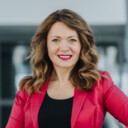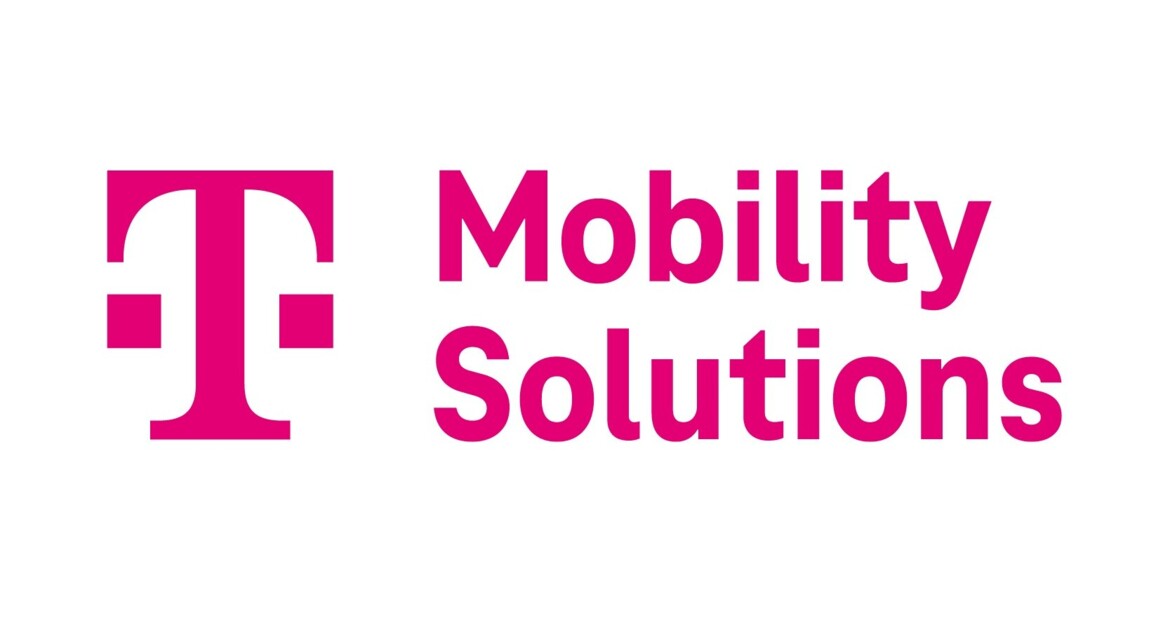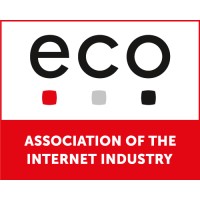A Woman in Tech Pioneering the Future of Mobility
In our “Women in Tech” series, explore the future of corporate mobility through the inspiring journey of Olga Nevska, Managing Director of Telekom MobilitySolutions.

© metamorworks | istockphoto.com
As part of its “Women in Tech” topic field, eco invites inspiring female specialists and executives from the Internet industry to take the floor in a series of interviews. In this issue of dotmagazine, you’ll get to enjoy an interview with Olga Nevska, Managing Director of Telekom MobilitySolutions. Since 2019, she has been responsible for the transformation of one of the largest corporate fleets into an innovative mobility provider. This article was first published in German in the interview series on lit.eco.de in October 2023.
Hanna von der Au: What is your working day like and what do you find particularly exciting about your job?
Olga Nevska: My job is at the intersection of telecommunications and mobility, two of today’s fastest growing and ever-changing industries. Here I have the opportunity to work on innovative solutions that improve people’s lives and revolutionize how we get to move around. I can hardly imagine a more exciting job right now.
My day-to-day work is just as colorful and diverse as the mobility of the future. I have a high degree of responsibility and a lot of room for creativity, and I get to deal with exciting new topics and developments every day. In this context, self-organization, structure, and planning are imperative. That’s very important to me.
Hanna: At Telekom, you are responsible for transforming one of Germany’s largest corporate fleets into an innovative mobility provider and are driving the transport transition toward interconnected, sustainable, and needs-based mobility. From your perspective as an expert: Has the future mobility already arrived in Germany? Where do we currently stand?
Olga: Germany has a long history in the automotive industry and, when it comes to transport transition, is doing even better than its reputation suggests. For example, when it comes to the international comparison of electromobility, we rank sixth internationally and third in Europe (PwC ‘eReadyness Index’ 2023). The number of electric vehicles is increasing and the network of charging stations is growing denser every day.
Shared mobility such as car sharing, bike rentals, and carpooling are also gaining more and more ground. And our cities are becoming smart: Berlin, Hamburg, and Munich are already treading innovative paths. A few examples in this regard include intelligent traffic guidance systems, real-time information on public transport, and the promotion of eco-friendly modes of transportation.
But all of this isn’t quite enough! The transportation system in Germany is fragmented and complex. The federal structure means that transport associations are organized at the regional level. As a result, different tariff systems and ticket structures not only make travel more complex; they also hinder the path to sustainable, interconnected transportation solutions. Important decisions are made far too hesitantly. Unfortunately, we often get bogged down in discussions instead of working together to join forces.
What we need is increased coordination, planning, and collaboration at the national level, along with a long-term vision for the transport transition. And we need to more consistently seize the opportunities of digitalization.
Hanna: In looking ahead to 2040, our vision entails the use of cross-platform mobility-as-a-service solutions up to the last mile, traveling in autonomous shuttles and cars, and achieving sustainability goals in the mobility sector. What is your vision of 2040 urban mobility?
Olga: In 2040, mobility will be characterized by sustainability, efficiency, and a smart transportation infrastructure that continuously adjusts to people’s needs. I envisage that our inner cities will be largely car-free. This will make them greener and improve the quality of life. All important places for daily life will be accessible on foot or via well-developed bicycle and public transportation networks. Our children will not experience commuting or rush-hour traffic jams. They will work flexibly from home or in nearby co-working spaces – or will have transport to their destination by shared, connected, and flexible means of transportation. With the aid of digitalization, mobility will be the bridge between my different fields of life, serving as a third place alongside home and the workplace. Journeys from A to B will no longer involve wasted time; instead, I’ll be able to use them productively. All forms of mobility will be seamlessly interconnected, and intelligent platforms will allow us to plan our trips easily and combine various modes of transportation. This is what I visualize, and much of this will already become a reality before 2040.
Hanna: You not only have a strong impact on the mobility of the future, but also in the context of Women in Tech. For example, at Telekom, you founded the internal women’s network Power Women, with just one offer involving weekly boxing training sessions. What exactly is behind Power Women, and what was your personal motivation for founding an internal women’s network?
Olga: I believe we should all do what is within our means to make the world a little bit better every day. And by that I really mean ‘doing this’ rather than just talking about it. I am committed to supporting women in business, and work with them to develop new perspectives. Perhaps it’s because I come from a culture where it’s quite natural for women to have equal standing with men in the professional realm. That’s why I established this network and, each and every day, I’m really happy that this wonderful group exists.
The members of Power Women meet once a week for boxing training. These regular meetings are very important because they bring us closer together as a team. Boxing not only enhances physical fitness, but also helps reduce stress, requires mental strength and stamina, and boosts self-confidence. These are all qualities that we can put to very good use in our daily jobs.
But we also accompany each other on our professional journeys. To this end, we organize workshops and coaching sessions on topics such as assessment centers, salary negotiations, etc., and help each other to take charge of our own professional progress – whether it’s towards the executive suite or a specialist career. In the past four years, I’ve already gained many ideas and inspirations from this network. But I’ve also gained two great new female colleagues and, ultimately, friendships.
Hanna: Women are heavily underrepresented in the tech industry. This applies not only to specialist careers, but particularly to management positions. Throughout your career, you’ve held a wide variety of management and leadership positions, with this including your role as a member of the Board of Directors at T-Mobile Czech Republic. In your view, what instruments work for both companies and women themselves to achieve more diversity in the executive ranks of tech companies?
Olga: My wish is that, as women, we will say out loud that we want to have a career and that we’ll stand by it. Compared to men, we often tend to wait and let opportunities pass us by. If we move out of this trap, we will quickly see more diversity in the executive floors. My leadership team, for example, comprises three women and three men of different ages, all from four diverse countries of origin. Why is that? We simply did it. And didn’t shy away from making a woman the technical director. At the end of the day, whether someone is a good manager does not come down to gender; it all depends on people’s skills and personality.
On the other hand, I would like to see a management that takes it for granted to assign women as well as men to all kinds of positions. If this is authentically exemplified, there will also be more female applicants. At least that’s the case at our company, where there are two women as managing directors.
Hanna: You’ve had a very impressive career in the tech industry: you came to Germany in 2004 thanks to a scholarship from the German Bundestag, started as a trainee at Telekom in 2009, and now today, as CEO of Telekom MobilitySolutions, you are responsible for transforming Germany’s second-largest corporate fleet into an innovative mobility provider. Recently, Handelsblatt named you as one of the 100 women who are significantly shaping Germany’s future. In retrospect, what qualities or skills were particularly helpful for your professional journey?
Olga: Recently, someone told me that I’m a “transformational optimist”. Perhaps that sums it up quite well, even if it’s a rather bulky word! What defines me is not just curiosity and a willingness to embrace change, but also the courage to take new paths without losing sight of the goal.
I think this is related to the fact that, in my childhood and youth, I always had to cope with change and reinvent myself. I come from Ukraine and, until I was 13 years old, I grew up in the Soviet Union, a country that no longer exists today. The many involuntary changes shaped me and taught me that they always provide opportunities for my development, to learn new skills, and to contribute something to society. Perhaps all of this is what has taught me to believe in myself and to move through life with optimism. At the age of 25, I finally set out for Germany, making a voluntary fresh start after many involuntary experiences.
Hanna: We’ll now give you another interesting job and make you the editor-in-chief of a leading New York Times publication or the host of your favorite podcast or TV show with mega coverage: You can invite whoever you want – dead or alive. Who would you talk to and on what topic?
Olga: I’d invite Greta Gerwig, the most successful film director in Hollywood right now. In her film “Barbie”, she has just brought the question of the role of women in modern society to the screen in a wonderfully ironic and provocative manner. I’d love to talk to her about the parallels between the tech industry and the film industry. I think there’d be a lot to say.
Hanna: As part of our #LiT interview series, we recently spoke with Kim Dressendörfer, Senior Account Technical Leader at IBM in New York. She offered us the following question for our next interview partner: “In my conversations with women from the tech industry, it very often turns out that they didn’t expect to end up in this industry. So my question is: When did you realize that it was the tech industry you wanted to work in?”
Olga: Such a question never really entered my head. From my end, entering the tech industry didn’t really entail a conscious decision, but was all about life’s revival. I always wanted to be where I could in order to make a difference. And I can do that in the telco industry, because it’s not a static branch; it’s constantly changing and has an enormous societal impact.
In my home country, it was quite normal for me to study telecommunications technology or to get involved in politics. I wish that in Germany, we would finally get to say goodbye to all of these girl/boy clichés. Every day, I try to pass on to my daughter that, in a free world, she has the choice to do whatever appeals to her.
Hanna: We’d also like to bring your thoughts and questions into the diversity debate. In this context, what question would you like to share with us for a follow-on interview partner?
Olga: We’re always having discussions about what women should change or do differently in order to play a more active role in the tech industry or in leadership positions.
What I’d much rather like to ask: What adjustments can we make in society so that women in the tech industry or in management positions finally become the norm? In my opinion, the root cause is not with women themselves, but in the structures of our society.
Thank you very much for your time and your participation in our interview series!
Hanna von der AU is Senior PR Manager at eco – Association of the Internet Industry. She is responsible for the development of communication strategies and concepts, content marketing activities, social media channels, and press releases. The topics closest to Hanna’s heart are diversity, Women in Tech, and sustainability. She coordinates eco Association's #JOINTHESOLUTION campaign, leads the activities around eco's German #LiT - Ladies in Tech initiative, and loves getting in touch with more women in the industry. Her aim is to make the Internet industry more colorful and diverse. Before joining eco in 2019, Hanna worked as a digital campaign consultant with a focus on content generation at a digital consultation agency (for customers like NRW.INVEST, GS1 Germany, Peek & Cloppenburg, Coop, Lufthansa).
Olga Nevska is Managing Director of Telekom MobilitySolutions, where, since 2019, she has been responsible for the transformation of one of the largest corporate fleets into an innovative mobility provider. Olga champions decarbonization, diversification, and digitalization and is committed to sustainable, shared mobility for all employees. She holds a PhD in economics and law from the Free University of Berlin, is a guest lecturer at the University of St. Gallen, and, in 2023, was ranked by “Automobilwoche” as one of the TOP 50 women in the automotive industry.
Please note: The opinions expressed in Industry Insights published by dotmagazine are the author’s or interview partner’s own and do not necessarily reflect the view of the publisher, eco – Association of the Internet Industry.






